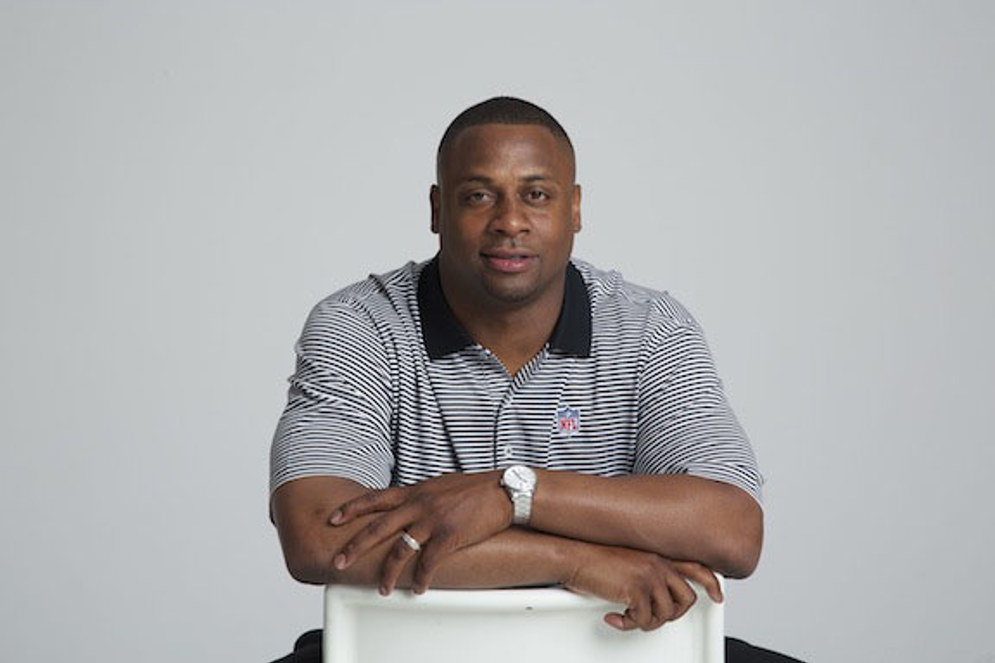My Address to the Annual Race and Sports Program - Troy Vincent

Troy Vincent, Executive Vice President of Football Operations
On April 23, I was honored to address the annual Race and Sports program co-sponsored by the University of Pennsylvania’s Center for Africana Studies and the Wharton Sports Business Initiative.
Sport in general, and football in particular, has united people of diverse backgrounds and driven social change in our culture. Great black athletes, like football’s Fritz Pollard, Marlin Briscoe and Art Shell, the Olympics’ Jesse Owens and Wilma Rudolph, baseball’s Jackie Robinson, and basketball’s Bill Russell and Lisa Leslie overcame prejudice, tradition and cultural norms to break cycles of injustice. They reached across racial divides and barriers to work with others to advance the cause, benefiting all of society.
Football is experiential in nature. The game shows us how to identify and discern unconscious bias and how to balance truth versus perception. It informs our understanding of what we say and how our words affect individuals as well as the team. Achieving balance and consideration for the diversity of others begins to break down the walls of injustice.
Dr. Martin Luther King Jr. said there were four steps to addressing racial injustice: “collection of the facts to determine whether injustices exist; negotiation; self-purification; and direct action.”
On April 16, 1963, sitting in a jail cell in Birmingham, Alabama, he wrote a letter to seven fellow clergymen. Describing the plight of people of color, he wrote: “Injustice anywhere is a threat to justice everywhere.”
He concluded: “Let us all hope that the dark clouds of racial prejudice will soon pass away and the deep fog of misunderstanding will be lifted from our fear-drenched communities, and in some not too distant tomorrow the radiant stars of love and brotherhood will shine over our great nation with all their scintillating beauty.”
A little over half a century later, we face many of the same challenges, but on a different level. I share Dr. King’s hope. I am honored that the good Lord has afforded me both the opportunity to experience the diversity of football and a platform from which to advocate the use of sport for social change.
I am a student of those who have influenced race in America — Presidents Kennedy, Reagan, Clinton and Obama, and civil rights leaders John L. Lewis and Dr. King. I’m even a student of the writings of Mahatma Gandhi.
Many of these influential people were white men and women who shared our commitment to justice and advanced the black cause. Many didn’t live to see the fruits of their labors. Often I feel as if we have forgotten their sacrifices, which made it possible for all of us to live in a time where we have choice and freedom. They didn’t give up their fight, even if they were not able to see over the mountaintop.
We need to ask ourselves: What are we willing to sacrifice and contribute to have true freedom, and how much of our lives are we willing to invest to have it?
I am a living example of how sport — specifically, football — has shaped my worldview by removing misunderstanding and fear. I’ve seen how sport can bridge great divisions in our culture, unite athletes and communities, and develop brotherhood on and off the field.
I believe we need to live by the Golden Rule because Scripture teaches us that the determination of character is not a person’s outward appearance, but his or her heart. Football — and all those involved with it — brought me to the place where differences can be worked out with integrity and allow us to show respect and honor toward our fellow man.
I hope that those who attended the annual Race and Sports program develop their own testimony — one that gives people of all races and backgrounds hope for the future, a heart for justice and the wisdom to overcome racism, both conscious and unconscious.
